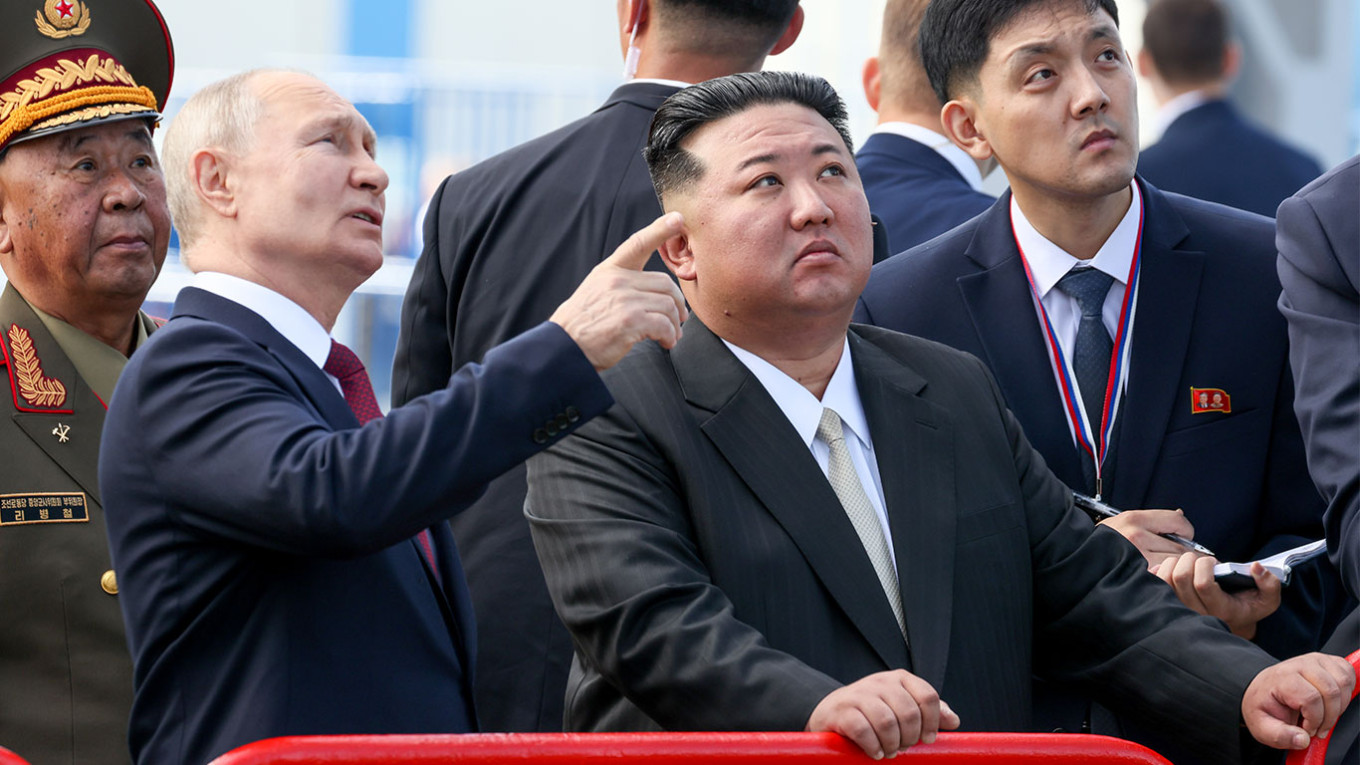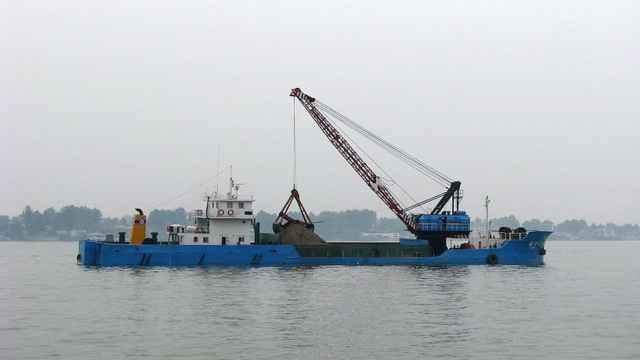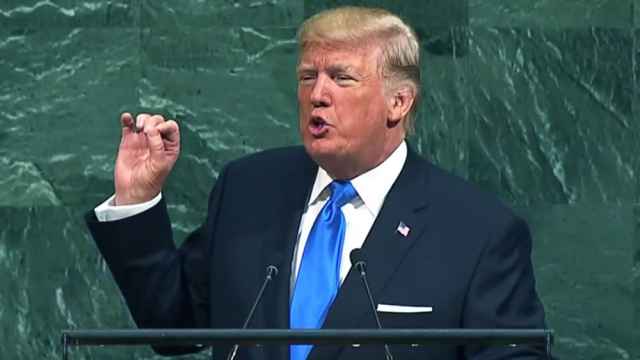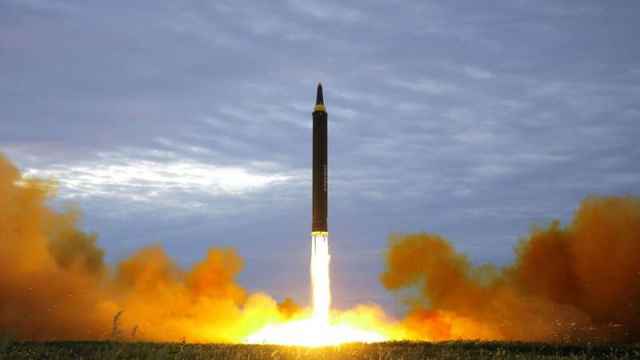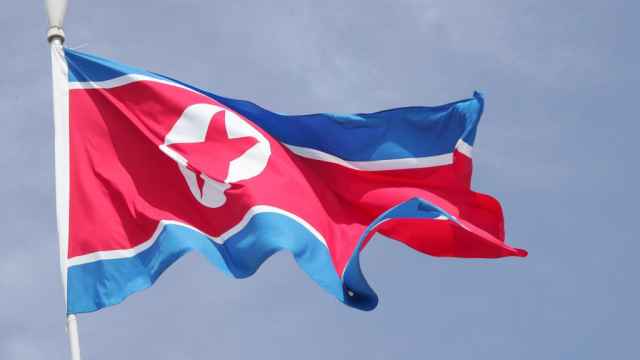Three decades have passed since the once-strong Moscow-Pyongyang relationship took a nosedive from which it has never quite recovered. Although no bilateral relationship between two sovereign states is without its complications, the relationship between North Korea and Russia is uniquely complex.
It is a relationship where Russia allows North Korean hackers to operate from within its borders, even as the DPRK’s cyber operatives target critical Russian entities. It is one where Russian officials have gone as far as to implement domestic measures in support of United Nations sanctions against Pyongyang, all the while providing avenues for North Korea to skirt the UN’s punitive economic measures.
Yet despite all this, when President Vladimir Putin met with North Korean leader Kim Jong Un for the second time in four years this week, he appeared to strike a decidedly jovial cord. As Kim exited his limousine at the Vostochny Cosmodrome on Wednesday, Putin greeted Kim informally in Russian. While Putin has been known to use informal language in contexts where it would normally be inappropriate to assert his rank, he went on to refer to Kim as an “old friend,” demonstrating that his intention was to display friendliness, not dominance. Kim, for his part, expressed unmistakable jubilation during his meeting with Putin, in many ways upstaging the warm reception from the Russian leader.
Putin’s reaction upon meeting Kim contrasts with the Kremlin’s dispassionate public attitude toward the meeting just before the North Korean leader’s arrival. Officially, the meeting was said to have focused on exchanging opinions on issues of regional and global importance, common refrains used by Moscow when discussing ties with the DPRK.
Just ahead of the summit, North Korea launched ballistic missiles, violating UN resolutions banning the country’s use of such technology — something that the DPRK had never done before under such circumstances.
While meeting with Putin, Kim Jong Un described DPRK-Russia relations as “strategically important.” Furthermore, Kim pledged his support for Russia’s actions in Ukraine, which Kim described in a way that has been variously rendered as a “just” or “sacred” fight in English translations of his remarks.
North Korea and Russia share a common struggle of “anti-imperialism,” according to Kim. Such remarks not only underscore how the countries’ current struggles against the West overlap, but also hark back to the 2001 Moscow Declaration that Putin signed with then-North Korean leader Kim Jong Il. The declaration contains language describing the two countries’ desire to establish a “new world system…in order to preserve global stability.” This is in line with Russia’s attempts at recent summits to move toward a multipolar world order.
Perhaps one of the more exuberant, and arguably surprising, remarks Kim made during the summit is his description of relations with Russia as his “first priority.” One would, after all, expect Kim to reserve such remarks for his relationship with China. Yet whereas China has apparently reacted with caution toward a burgeoning North Korea-Russia axis for fear of antagonizing the U.S., when one looks at the specifics of Kim’s visit to Russia, the remark is not as surprising as it would perhaps seem on the surface.
One sign of how much the relationship has changed in recent years is the apparent shift in Moscow’s attitude toward UN sanctions against Pyongyang. While most of the world stands horrified at the DPRK’s nuclear saber-rattling and litany of human rights abuses, the Kremlin seems willing to go even further to cooperate with its neighbor.
Putin wasn’t always willing to take this stance. During his first summit with Kim Jong Un in April 2019, the North Korean leader reportedly wanted his Russian counterpart to help him secure relief from UN sanctions. Throughout this most recent meeting, however, there was ample evidence that North Korea and Russia are prepared to take their relationship to the next level.
The first signal is the summit’s evident focus on the military. There has been a great deal of media speculation about a possible arms deal between the DPRK and Russia. The makeup of the North Korean delegation, where Kim was flanked by high-ranking officials from the military and arms industries, indicates that such a deal, a clear violation of UN Security Council Resolution 2270, most certainly occurred. However, the details of any such agreement won’t be definitively known for some time.
The same resolution that acts as a comprehensive arms embargo against the DPRK also prohibits other countries from cooperating with Pyongyang in the aerospace field. Yet Russia hopes to cooperate with North Korea nonetheless. In Putin’s own words, that’s why they met at the Vostochny Cosmodrome.
North Korea has repeatedly failed to launch a spy satellite into space, and so could benefit from Russia’s technical know-how in this field. Of course, any advancement in North Korea’s technical capabilities in that regard would pose an increased threat to Japan, South Korea and the United States, countries that recently held a trilateral summit criticized by Moscow for elevating tensions in the Asia-Pacific region.
A further sector in which the two countries have a history of cooperation is construction. North Korean workers have been employed across Russia on projects including stadiums for the 2018 World Cup. In line with UN Security Council Resolution 2397, all DPRK citizens working abroad were supposed to have repatriated to North Korea by December 2019. But before Kim met with Putin, he discussed joint projects with the governor of the Primorye region, Oleg Zozhyemako.
In 2018, Kozhemyako’s predecessor requested Moscow grant Primorye an exemption from abiding by UN sanctions on North Korean workers. Moscow refused, citing the need to comply with UN directives. Yet now Moscow appears to believe it is no longer beholden to such restrictions.
In addition to meeting with the governor of Primorye, Kim also met with Alexander Kozlov, Russia’s natural resources minister. The meeting took place at Khasan, which is part of a North Korea-Russia special economic zone that has been granted an exemption from UN sanctions governing North Korea’s sale of coal. Russia has been accused in the past of violating UN sanctions by laundering North Korean coal and passing it off as Russian-origin.
Even before Russia’s invasion of Ukraine, North Korea and Russia appeared ready to increase cooperation in coal sales. Potentially, this indicates a willingness to violate UN directives regarding transactions involving North Korean coal.
North Korea providing arms to Russia certainly poses a clear security risk for Ukraine. Yet it is the whole world, and the rules-based global order, that stands to be impacted by is the fact that the DPRK and Russia now appear ready to cooperate in ways that violate a raft of UN Security Council resolutions.
Indeed, Moscow appears to believe that sanctions against the DPRK have outlived their purpose and are no longer appropriate in the current geopolitical climate.
Kim’s visit to Russia provides more evidence that Russia is ready to be the spear’s tip in unravelling the multilateral sanctions regime against Pyongyang. Subsequent developments from this summit could have far-reaching consequences that go well beyond the North Korea-Russia relationship and even the battlefields of Ukraine.
Unlike the divided international reaction to Russia’s invasion of Ukraine, the world has been nearly unanimous in its efforts to curb the DPRK’s security provocations. Yet if both North Korea and Russia can offer mutual support with little consequence, it signals the regimes see their interests as aligned no matter what the rest of the world thinks.
A Message from The Moscow Times:
Dear readers,
We are facing unprecedented challenges. Russia's Prosecutor General's Office has designated The Moscow Times as an "undesirable" organization, criminalizing our work and putting our staff at risk of prosecution. This follows our earlier unjust labeling as a "foreign agent."
These actions are direct attempts to silence independent journalism in Russia. The authorities claim our work "discredits the decisions of the Russian leadership." We see things differently: we strive to provide accurate, unbiased reporting on Russia.
We, the journalists of The Moscow Times, refuse to be silenced. But to continue our work, we need your help.
Your support, no matter how small, makes a world of difference. If you can, please support us monthly starting from just $2. It's quick to set up, and every contribution makes a significant impact.
By supporting The Moscow Times, you're defending open, independent journalism in the face of repression. Thank you for standing with us.
Remind me later.


